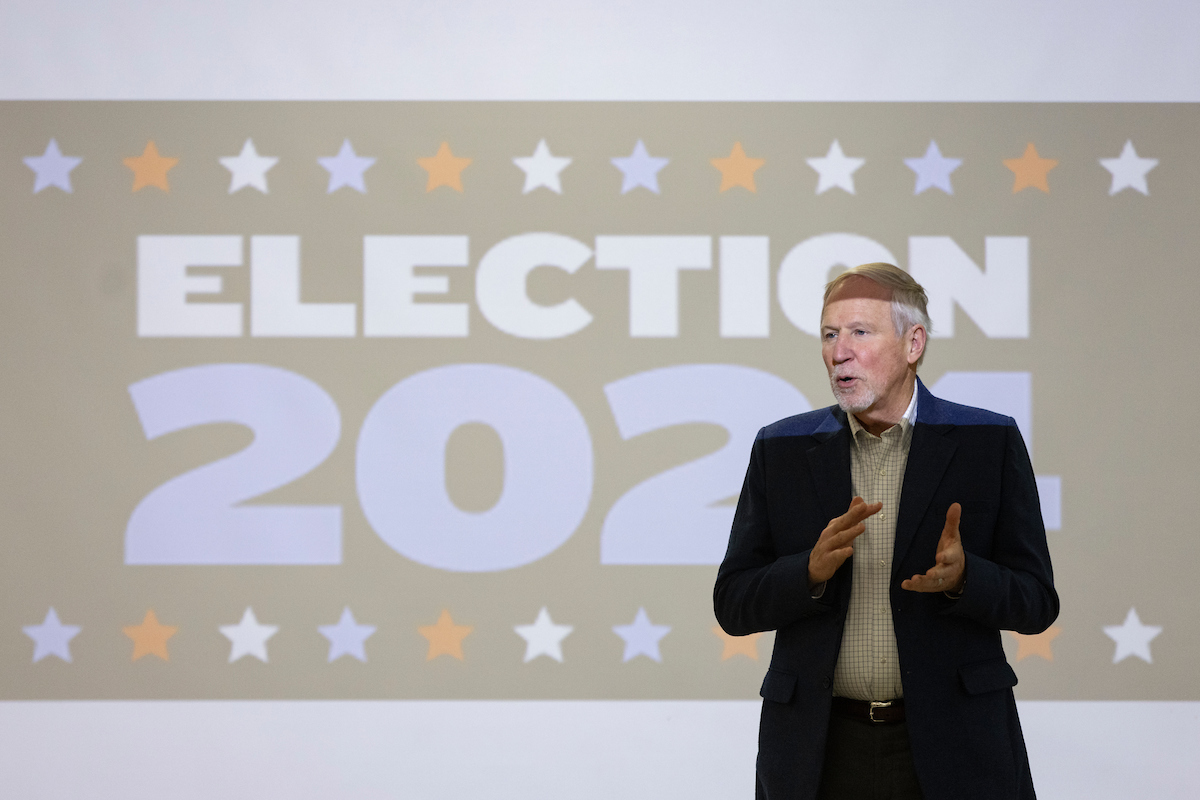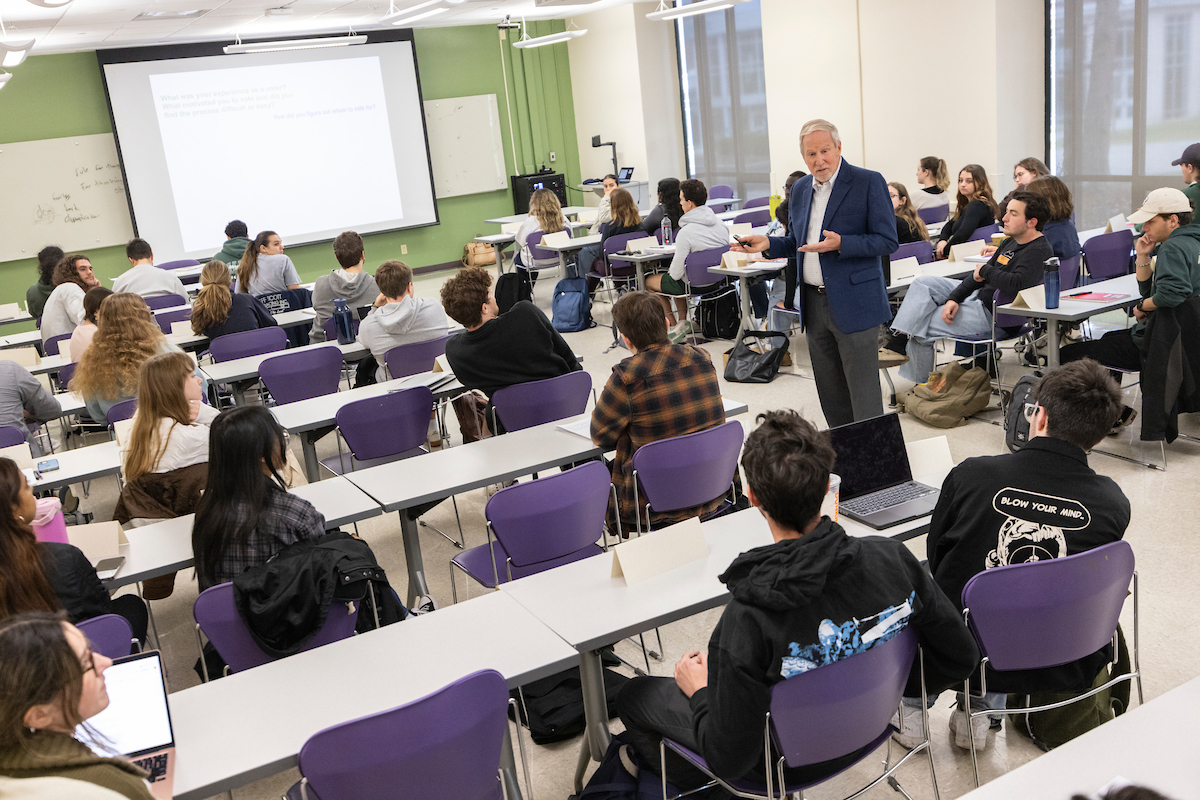Binghamton University students navigate the 2024 election by examining past elections
Professor of History Donald Nieman leads newly launched class

Two days after Election Day, Binghamton University Professor of History Donald Nieman opened his Presidential Elections US History course by asking students about their experience voting, what motivated them to vote and if they found the process difficult or easy.
Of the 71 students in the class, most participated in voting, including some first-time voters. Many were eager to discuss their experiences with voting by mail, voting early or casting their ballots on Election Day. Even though not everyone was pleased with the election results, the discussion was enthusiastic, informative and respectful – qualities Nieman values in his students, making this his favorite part about teaching this course.
“The students are really smart, engaged and respectful of one another,” Nieman said. “When you do something like this, at this particular time, you always worry. But Binghamton students have never disappointed me. They always not only participate, and participate knowledgeably, but they do so civilly.”
The class discussed the election thoroughly, focusing on answering other guided questions such as Nieman asking students how they figured out who to vote for and if they knew people who didn’t vote and why. Responses varied, yet all were treated with equal importance and met without judgment – an aspect of the class that many students appreciate.
Ryan Brucato, a junior biology major from Staten Island, N.Y., is taking the course as an elective and believes it improved his historical knowledge and skills in civil dialogue.
“In this class, everyone’s opinions are heard and no one feels left out,” Brucato said. “I think Professor Nieman does a good job of making sure that everyone is respected. When it came to the current election, he brought up information that we used to know how to vote, when to vote and how to determine which candidate best represents our values.”
Nieman, former University Provost, designed and taught this course for the first time this semester, working with his course graduate assistant, Connor Naylor. Nieman wanted to offer a course that students would find both relevant and beneficial, especially during such a heated election season.
The course studies the history of 11 presidential elections, exploring key issues. Nieman explained that some view this election as unprecedented, others as a historic turning point, while others were simply eager for it to end. By analyzing critical elections of the past, he said he hopes to provide students with context for the 2024 election.
“What I hope students come away with is an understanding of how our political process has evolved, how it’s become more inclusive and how some of the problems that we see in the political process today are nothing new,” Nieman said.
The course includes assigned readings – some from Nieman’s recently published book, The Path to Paralysis – along with lectures and class discussions. It also includes two papers based on the readings, as well as a midterm essay exam and final. Attendance is required, as the work done in-class is essential to learning, said Nieman. Although some discussions address controversial topics, respect is expected at all times.
“When I start the class – and this is not just true of this class, but any class I teach, because most of the classes I teach have topics in them that are going to be controversial – I really emphasize that we’re going to be asking difficult questions, dealing with difficult topics, that there aren’t right answers, there will be opinions and that opinions have to be backed up with evidence,” Nieman said. “This is not talk radio. This is an academic class, and that we will be respectful. And so I think they get the message.”


